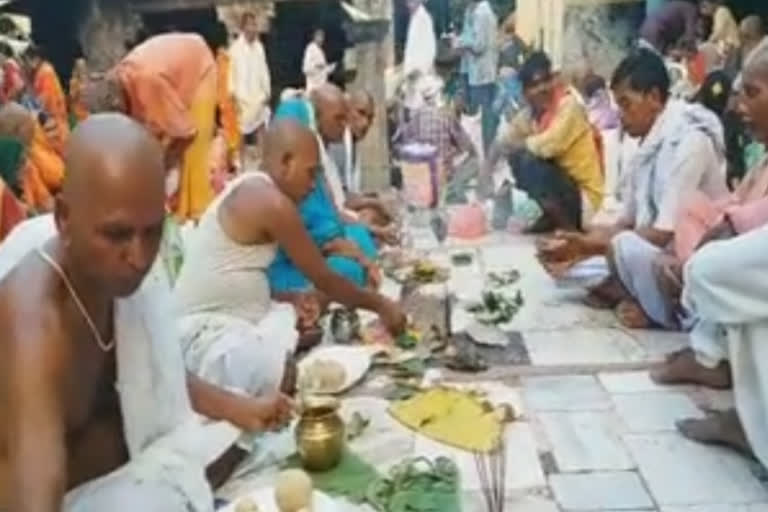Gaya (Bihar):The Pitra Paksha is a period in the Hindu year when people pay their respects to their deceased elders by performing Tarpanam and Shradh rituals.
The 17-day long phase in the month of Ashwin is considered ideal for penance and asking for forgiveness from the dead relatives, for the wrong done to them knowingly or unknowingly.
Pitra Paksha has been given a very important place in Indian scripture and the karma cycle. The 17-day Pitra paksha will start from September 1 and end on September 17.
During this period, people will donate for their ancestors (fathers). If the matter is of Pitra Paksha and the name of Gayaji of Bihar is not named, then it seems a bit incomplete. Let us tell you, the supernatural story of the World famous Gaya Ji.
ALSO READ:Tamil Nadu Thowheed Jamath organisation protests against CAA, NRC in Chennai
Gaya is the only city in the world which has a Ji word attached to it. The city of salvation Gaya is a special place for Sanatan Dharam people.
Devotees reach not only from the corners of the country but also from abroad, for the salvation of their forefathers. In Gaya Ji, ancestors get salvation only by making pinds made of sand and water of the river Falgu. The religious Veda Puranas tell the mythological stories of Gaya Ji.
The name of four Purusharthas in the Vedas for man, these four are Dharma, Artha, Kama and Moksha. In such a situation, Gaya ji has been considered the place of attainment of Moksha. Only when three efforts are meaningful can salvation be possible.
WHAT IS PITRI PAKSHA?
‘Pitri Paksha’ means the fortnight or 15 days dedicated to our ancestors. It comes just after the festival of Anant Chaturdeshi every year. The entire period from the full moon day of Bhadra month to Amāvásyā, which means the lunar phase of the new moon in Sanskrit, of Ashwin month.
It is said that during this period, ancestors reach their kin in different forms. People believe that one can get freedom from the cycle of rebirth on the earth by performing the ritual of ‘pind daan’ and they get salvation after death. During this festival, people pay their respect to their ancestors and even pray for the peace of their souls, which is central to the entire exercise of the shraadh.
